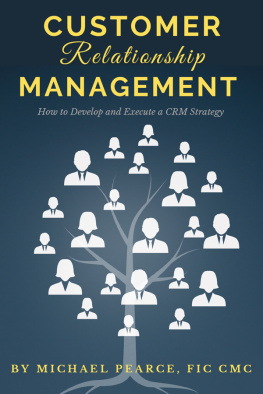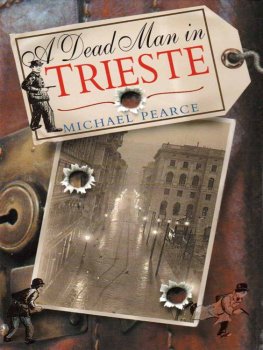Michael Pearce - The Last Cut
Here you can read online Michael Pearce - The Last Cut full text of the book (entire story) in english for free. Download pdf and epub, get meaning, cover and reviews about this ebook. genre: Detective and thriller. Description of the work, (preface) as well as reviews are available. Best literature library LitArk.com created for fans of good reading and offers a wide selection of genres:
Romance novel
Science fiction
Adventure
Detective
Science
History
Home and family
Prose
Art
Politics
Computer
Non-fiction
Religion
Business
Children
Humor
Choose a favorite category and find really read worthwhile books. Enjoy immersion in the world of imagination, feel the emotions of the characters or learn something new for yourself, make an fascinating discovery.

- Book:The Last Cut
- Author:
- Genre:
- Rating:5 / 5
- Favourites:Add to favourites
- Your mark:
- 100
- 1
- 2
- 3
- 4
- 5
The Last Cut: summary, description and annotation
We offer to read an annotation, description, summary or preface (depends on what the author of the book "The Last Cut" wrote himself). If you haven't found the necessary information about the book — write in the comments, we will try to find it.
The Last Cut — read online for free the complete book (whole text) full work
Below is the text of the book, divided by pages. System saving the place of the last page read, allows you to conveniently read the book "The Last Cut" online for free, without having to search again every time where you left off. Put a bookmark, and you can go to the page where you finished reading at any time.
Font size:
Interval:
Bookmark:
Michael Pearce
The Last Cut
Chapter 1
'It will be for the last time, said Garvin, the Commandant of Police.
It seems a pity, said the Kadis representative, after a thousand years.
Oh, more than that, said McPhee, the Deputy Commandant. The rites almost certainly antedate the Arab invasion. The ancient Egyptians-
Yes, well, thank you, said Garvin. That all?
Theres the question of the gravediggers, said the young man from the Consulate.
Gravediggers?
Yes. The ones who actually make the cut. Its either the Muslim gravediggers or the Jews. This year its the Jews.
Well, then-
Yes, but it falls on their Sabbath this year.
Okay, let the Muslim gravediggers do it, then.
They wont like that!
The Muslims?
No, the Jews. Its their turn.
Yes, but they wont do it on the Sabbath, I thought you said?
Well, they will do it if theyre told to. And if they get paid extra.
There was a little silence.
I suppose I could get the Old Man to talk to the Finance Department.
And I could get the Kadi to talk to the Khedive and get him to tell them.
That all settled, then? Nothing else? asked Garvin. Right, Mamur Zapt, the rest is up to you.
As they got up from the table, McPhee said:
They used to sacrifice a maiden, you know.
Nonsense! said the Kadis representative. Thats just a myth. Anyway, it was the Christians.
Thats a myth, too, said the representative of the Copts hastily. You cant blame it on us. The Canal wasnt built till the Arabs came.
The rite may be older, said McPhee. It almost certainly dates back to the Pharaohs.
Lets blame them, then, said the young man from the Consulate, picking up his papers. At least they cant answer back.
Thats all in the past, anyway, said Garvin. These days weve got other things to think about.
What other things? asked Owen. It was the first time hed done this.
Oh, the general disorder. People use it as an excuse-
They certainly do, said McPhee, cheeks going pink.
To do what?
Well
The women go unveiled, that sort of thing, said the Kadis representative.
Worse than that, said McPhee primly.
Really? said Owen. Exactly what-?
Youll find out, said Garvin. At any rate, it will be for the last time.
Watch out for the Maiden, said the young man from the Consulate, as he and Owen left the room together.
They found her, of course, the next day.
The canal bed, awaiting the water, was dry now throughout most of its insalubrious length. It ran through the heart of the city from Old Cairo to the new barracks at Abbasiya and was a handy dumping-place for rubbish of all kinds, from excrement to onion peelings to collapsed angarib rope-beds to dead dogs; and, of course, to dead humans. It had the additional advantage in the last case that towards the time of the Inundation it had become so foul as to deter all but the lowest scavengers from venturing into it. The maiden would have gone undiscovered had it not been for the fact that the ceremonial cutting of the dam involved the construction of a tall cone of earth, and it was while the workmen had been working on this that they had come upon the body.
Bodies deteriorated quickly in the heat and it was by no means evident now that the body was that of a maiden, but the workmen were in no doubt. Nor, unfortunately, was the rest of the population of Cairo.
Blast it! said Garvin. Theyll all connect it with ending the Cut!
Every year when the waters of the Nile began to rise, a temporary dam was constructed across the mouth of the Khalig Canal, just opposite Roda Island. When the Nilometer on the Island showed that the water was at its highest, the dam was cut and the water allowed to flow through the canal. The moment traditionally marked the release of waters throughout the land, when the dams would be opened and the water pour into the canals and through the irrigation system as a whole.
After this year the water would still pour but the Cut would be no more. The canal was to be filled in and a tramway put on top of it.
All the Departments were pleased: Sanitation, because the canal was a notorious health hazard, Transport, because they got a new tramway out of it, Finance, because they got it at a cost of next to nothing, Irrigation, because the damned thing was an irrelevance anyway, the Government generally because it could be seen as modernization.
The ordinary Cairene, however, who had always had great affection for the festivities which accompanied the Cut, was much less happy
The British are taking away all our pleasures, they grumbled.
In most countries they would have blamed the Government. In Egypt they blamed the British. This was reasonable since the British ran the country. Invited in by a former Khedive to assist him to straighten out the countrys finances, they had decided to assist him to straighten out a few other things as well, and were still, thirty years later, assisting.
Another example of the British killjoy spirit! thundered the popular (Arab) press. First, they ban the Hoseini celebrations-
But that was because they were mutilating each other! protested Owen.
It had been the practice, as part of the general festivity, for dervishes to slash each other with swords, scourge their backs with razor-like chains, and impale themselves, and their neighbours, on meat-hooks.
Surely you dont defend- he had said to his friend, Mahmoud.
Mahmoud, a young lawyer in the Ministry of Justice, was the last person to defend such practices. He regarded them as a thing of the past and the past was exactly what he wanted to get rid of. Like most of the Ministry lawyers, he was a member of the Nationalist Party and committed to modernization. For that reason he wasnt much in favour of the canal, either.
Its an open sewer, he said.
Nevertheless, he felt sorry about the ending of the Cut.
If even he, arch-modernizer that he was, felt a twinge over the Cuts going, then Owen could just imagine how the ordinary inhabitants of the city felt. The Cut was part of popular history. Removing it was like removing a part of oneself, a tooth, say, yes, a wisdom tooth, useless but painful to extract. Not only that; some people believed in the wisdom. They might resist its going.
That was why this time Owen had become involved. Ordinarily, marshalling the festivity was a matter of simple policing and Owen preferred to leave simple policing to the simple police. The Mamur Zapt, Head of what had in the past been known as the Khedives Secret Police and what was today very properly thought of, in English terms, as the Political Branch, had a more discreet responsibility for preserving law and order. The Khedive liked to say that the Mamur Zapt was the hidden hand that held the city. Rather too often he saw the hand as a fist; whereas Owen preferred to keep it hidden.
What concerned him now was that whereas in any normal city the ending of the Cut would be merely a matter for mutter, in the explosive mixture of races and religions that was Cairo it could very quickly and all too easily ignite into violence. And the Maiden was just the thing that could provide the spark.
About the Maiden as maiden, Owen, as Mamur Zapt, cared nothing at all. Ordinary murder was not his concern. But about the Maiden as a possible source of political conflagration he cared a great deal. Even if she was a myth.
Which was why he decided to take an interest in the case. He rang up the Parquet to ask who was handling it.
El Zaki, they said.
This was fortunate, for El Zaki was Owens friend, Mahmoud.
Where is he? he asked.
At the mortuary.
This was fortunate, too, as the mortuary was the only cool place in Cairo. He went there with speed, or, at least, in an arabeah, the horse-drawn cab which at that time in Cairo served as taxi. Unsurprisingly, this being August, when men, flowers and horses drooped, by the time he got there Mahmoud was coming out.
Font size:
Interval:
Bookmark:
Similar books «The Last Cut»
Look at similar books to The Last Cut. We have selected literature similar in name and meaning in the hope of providing readers with more options to find new, interesting, not yet read works.
Discussion, reviews of the book The Last Cut and just readers' own opinions. Leave your comments, write what you think about the work, its meaning or the main characters. Specify what exactly you liked and what you didn't like, and why you think so.


